by Anonymous Industry Insider
A longtime watch industry insider who wishes to remain anonymous wrote the following article about the recent changes at Richemont, presenting some insightful commentary and hypotheses on the near future of haute horology.
A Nobel prize laureate wrote in 1964 that, “The times they are a-changin’.”
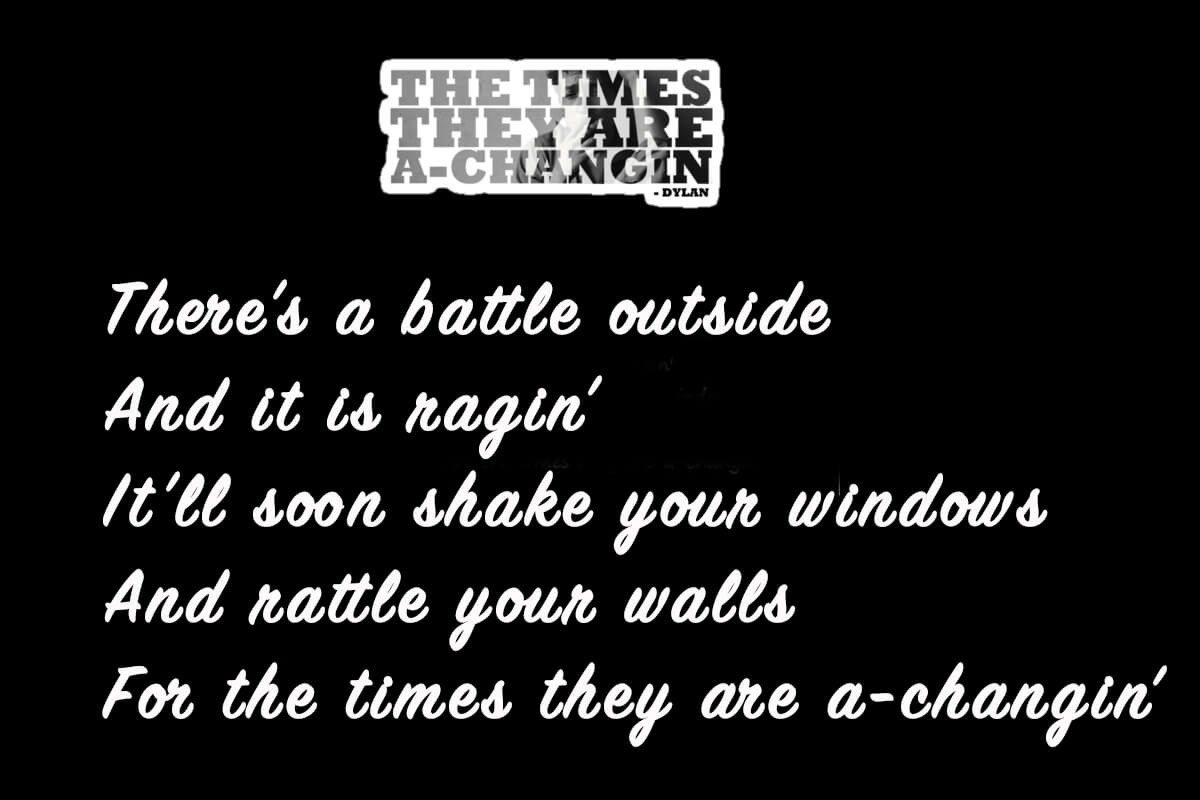
It is now 2017, and the locus of the changes in the horological world is a company known as Compagnie Financière Richemont SA.
These changes began last year: in March 2016 the company announced that joint chief executive officer Bernard Fornas would retire. Then in November 2016 Richemont disclosed that CEO Richard Lepeu, 64, and chief financial officer Gary Saage, 56, would retire in 2017. Eight other directors would step down, and two new managers would be appointed to lead watchmaking and operations.
The “new managers” are men who have managed to get ahead of the field at Richemont, where they have worked for a long time. One is Georges Kern, until the end of March 2017 CEO of IWC, after which he will become head of watchmaking, marketing, and digital. He will be replaced at IWC by Chris Grainger-Herr.
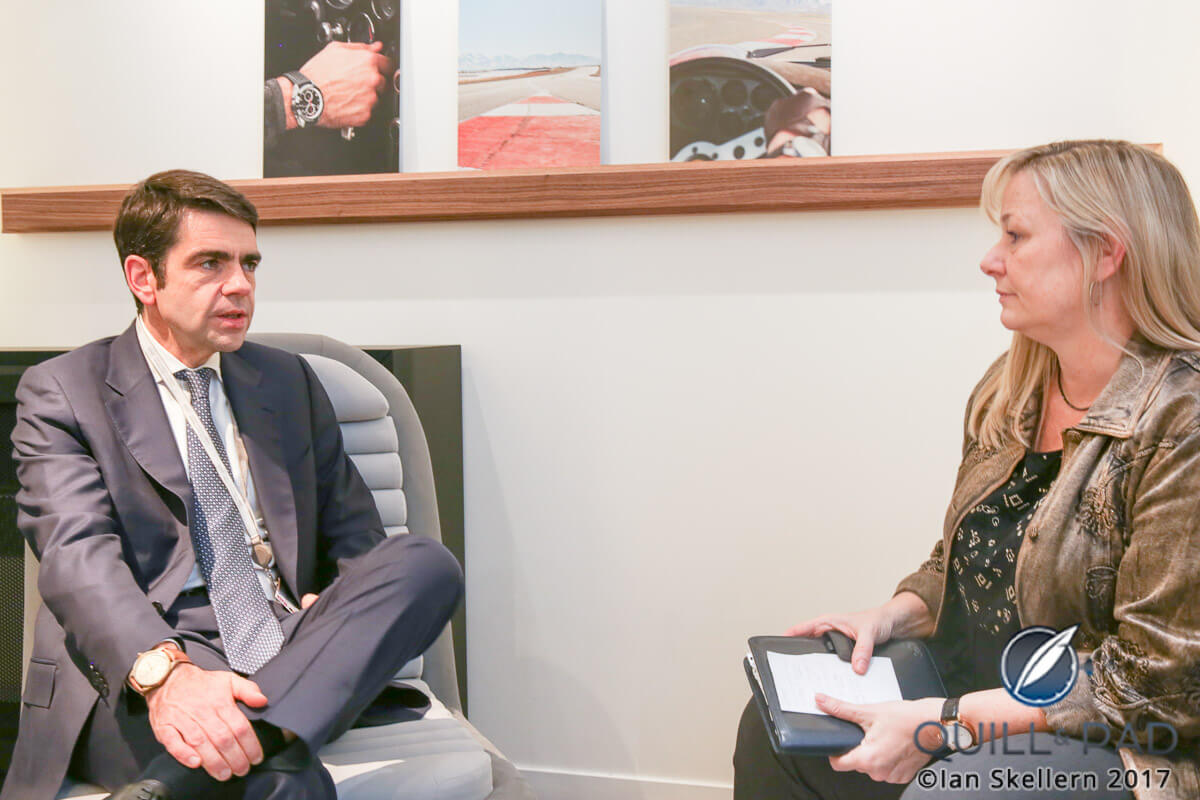
Jérôme Lambert talking to Quill & Pad’s Elizabeth Doerr at SIHH 2017
The other is Jérôme Lambert, current CEO of Montblanc and previously CEO of Jaeger-LeCoultre; he will be head of operations at Richemont. Nicolas Baretzki moves up out of the Montblanc structure to replace him.
Just the beginning
Those changes were just the beginning. In late January, following the end of SIHH 2017, Richemont announced that four brand CEOs would be leaving their positions.
Philippe Léopold-Metzger of Piaget and Juan-Carlos Torres of Vacheron Constantin will retire; Léopold-Metzger’s announced replacement is Chabi Nouri, who will take control of her new position on April 1, 2017.
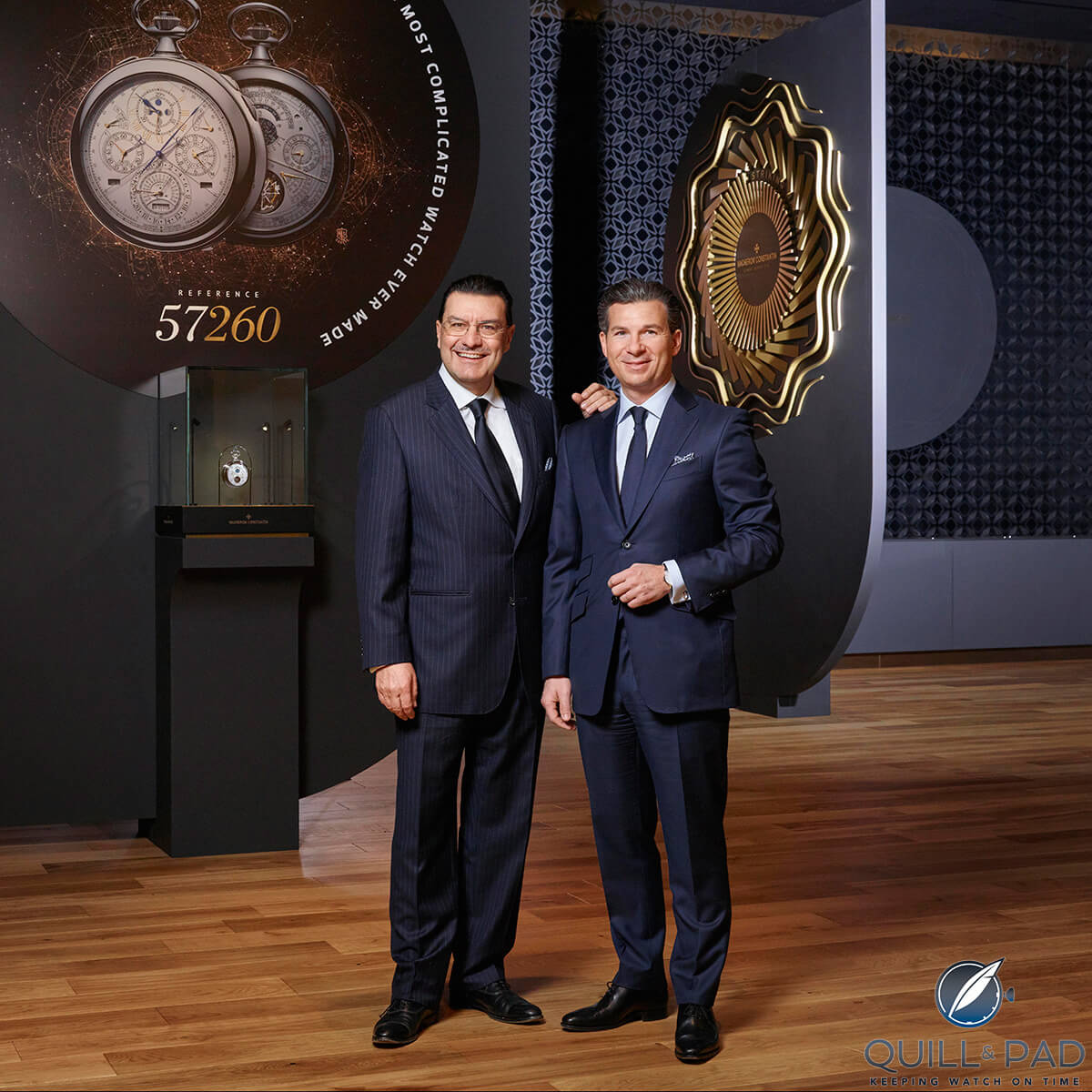
Out going CEO of Vacheron Constantin Juan-Carlos Torres (left) with incoming CEO Louis Ferla
Vacheron Constantin’s new CEO is Louis Ferla, who has been the managing director for sales and marketing at the brand since 2015. He has extensive education and business experience in Hong Kong, Taiwan, and China. Both Torres and Léopold-Metzger become non-executive presidents as of March 31, 2017.
Daniel Riedo of Jaeger-LeCoultre and Fabrizio Cardinali of Alfred Dunhill have “decided to leave” their positions. In a sense, none of this should be surprising, including the fact that Richemont CEO Johann Rupert has acted decisively.
Richemont publishes neither performance nor other financial information regarding its brands separately. But, reading between the lines of the departures, there appears to be no real surprise here. The executives of Richemont brands that apparently have done well have advanced, while those of brands that may have struggled have left.
Kern had taken a niche technical brand (IWC) and turned it into a powerhouse with a large diversity of product offerings, mostly in the sporty luxury segment.
Lambert revitalized Montblanc with clever and well-priced new products.
On the other hand, Piaget and Vacheron Constantin both suffered from the downturn in business in China, with their new products often seeming to miss potential market opportunities.
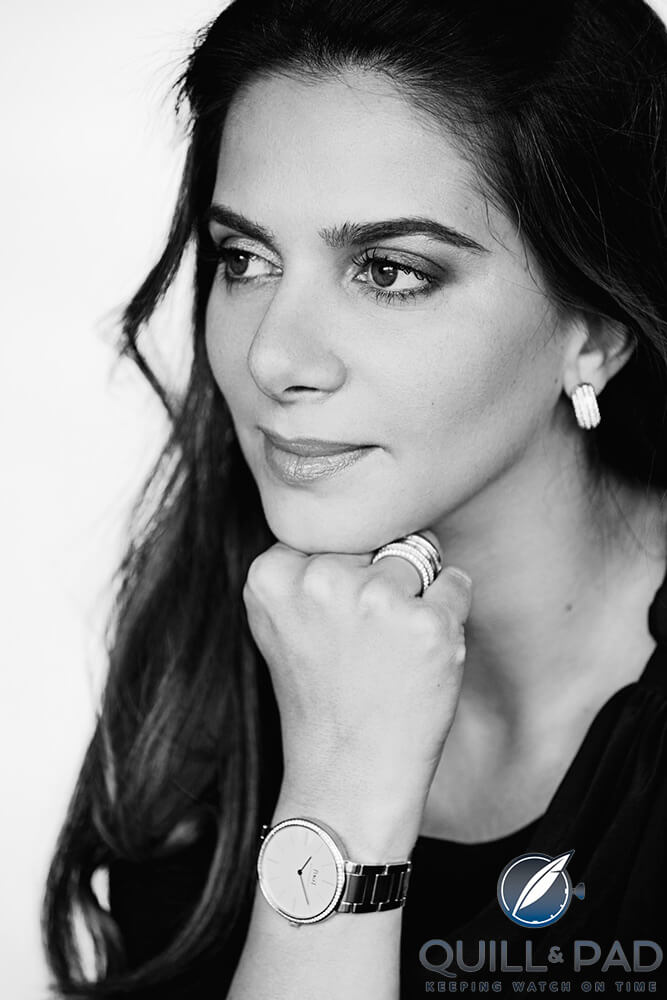
Newly appointed Piaget CEO Chabi Nouri
Riedo (see Got A Minute? Daniel Riedo, CEO Of Jaeger-LeCoultre), who was tasked with running Jaeger-LeCoultre after two years in JLC’s production and 12 years at Rolex, may have had other difficulties. Richemont already showed some displeasure at his performance when it appointed an unprecedented deputy CEO in 2016.
Riedo was apparently unhappy with that appointment and did what he could to limit it using corporate politics; the deputy CEO left some six months ago, and it comes as little surprise that Riedo is now out the door. Kern will lead this brand in the interim.
And what of Fabrizio Cardinali at Dunhill? Let me ask you this: what have you heard about Dunhill of late? I thought not.
Cardinali will be replaced by Andrew Maag, most recently at Burberry.
But what does this all mean for Richemont?
Here are a few educated guesses.
1. There will be more, better-coordinated marketing for all brands. Kern believes that people buy watches for emotional reasons, and that the brands will uniformly appeal more in that setting.
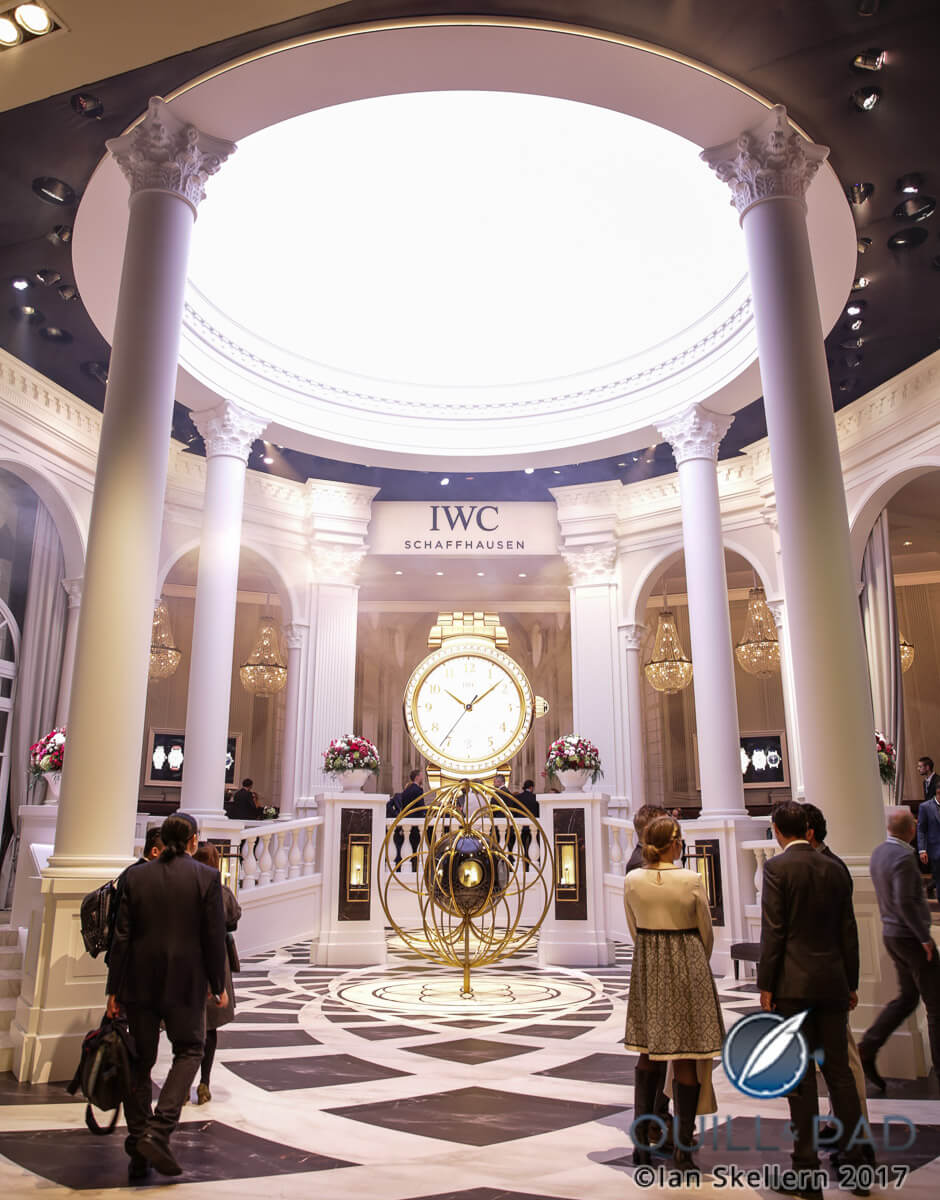
IWC’s Florentine palazzo-themed booth at SIHH 2017
Take IWC’s booth at the 2017 SIHH, which was the recreation of a Florentine palazzo. The company was very obviously selling dreams, luxury, and romance – particularly to women (given the new feminine products), but also with the new and sometimes technical Da Vinci watch offerings.
Expect more of that by other brands.
2. There will be significantly more e-marketing.
It is worth noting that Kern is head of “watchmaking, marketing, and digital.” Note that digital is not grouped under marketing and that watchmaking and marketing now go hand-in-hand.
E-marketing can be efficient since it is less costly and can reach broader markets.
3. There will be more lower-priced models offered by Richemont brands, at least relative to their current price points.
Vacheron Constantin’s product strategy in particular needs a change. Despite a watch recession and a shrinking China market, Vacheron Constantin’s new models at SIHH 2017 were generally more complicated and more expensive.
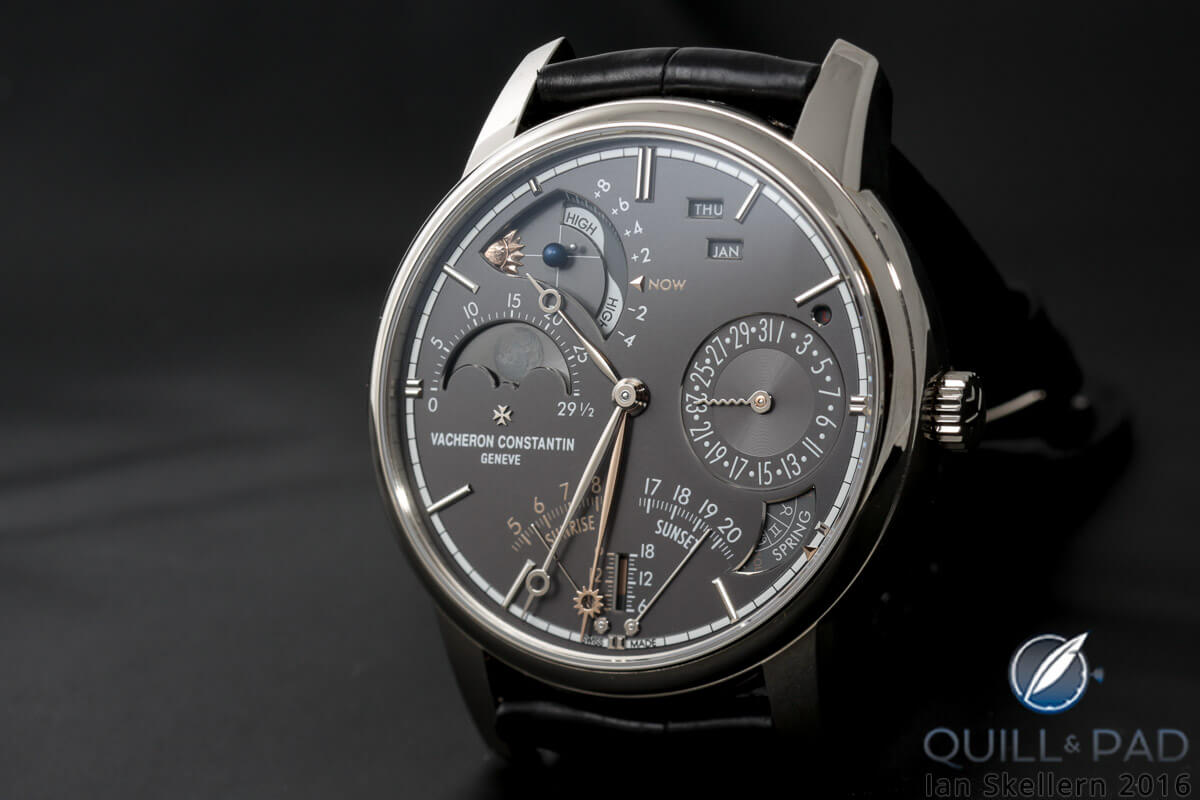
The very complicated Vacheron Constantin Celestia introduced at SIHH 2017
It’s easier to sell lower priced watches than higher priced ones. Expensive ones will be “talking pieces” or will still be produced to maintain market positions.
On the whole watch retail prices have risen astronomically in recent years, and there needs to be an adjustment. Maintaining market share is more important now than out-of-sight prices that sell in very limited quantities.
4. Consequently, there will be more steel watches and perhaps some with less “haute horology” movements. It appears that, except for niche markets such as expert collectors, movements don’t sell watches.
ValFleurier, Richemont’s stand-alone movement manufacture, will produce cost-effective movements for many basic models. There will be an internal push toward improved industrialization.
5. There may be more limited editions for some brands, especially those targeting particular markets.
This strategy has worked well for IWC and also for some non-Richemont companies like Audemars Piguet. It is consistent with marketing development and also e-marketing.
6. As a wild guess, there will be a new emphasis on the secondary or “certified pre-owned” market.
Like automobile dealers, the Swiss watch industry needs to wake up to the fact that, to sell a new watch, the consumer first might want to sell an old one.
Providing more liquidity, especially in an Internet context, should further promote new watch sales.
7. There will be a renewed emphasis on broadening markets.
There will be more women’s watches, more focus on broader geographic markets, and broader appeals to non-watch clientele. This might mean that watches will become even more like “fashion items” than at present, but that might be avoided if the integrity of product is maintained.
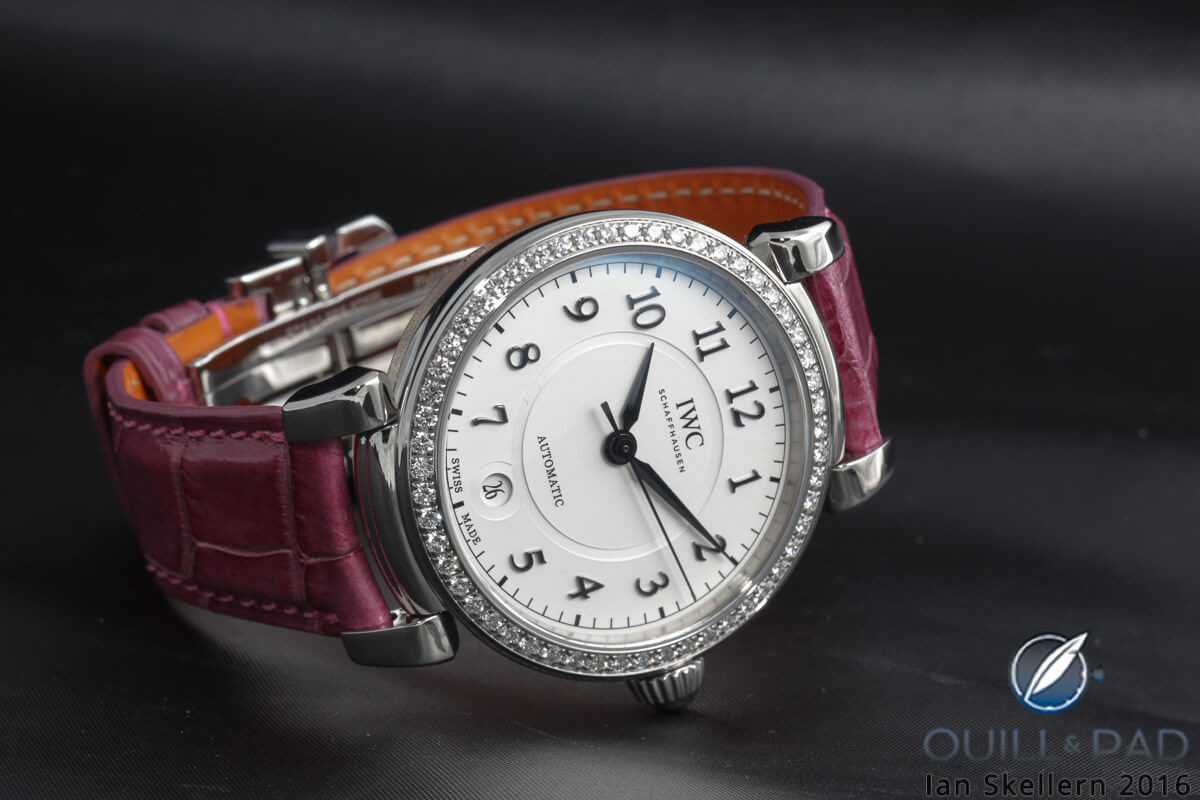
IWC Da Vinci Automatic 36, presented at SIHH 2017
In a sense it appears this could be a logical extension of the status quo with some broader marketing.
But actually it involves a paradigm shift: in five years’ time the market for fine watches will have totally changed.
Far more sales will be online to a different consumer demographic.
A new world approaches.
Trackbacks & Pingbacks
-
[…] The 2017 edition of the SIHH (Salon International de la Haute Horlogerie) was quite busy despite the various ongoing dramas at the Richemont group (see Do The Recent Changes At Richemont Herald A New Watch World? An Industry Insider Present Some Hypoth…). […]
-
[…] 1. A semana passada foi mesmo marcada pelo anúncio de algumas alterações nos quadros de gestão de marcas do grupo Richemont. Se importa saber que CEOs de longa data, como Juan-Carlos Torres da Vacheron Constantin, deixarem a sua função, ou que, pela primeira vez, uma mulher irá ocupar um cargo de CEO numa marca de relojoaria e joalharia no grupo Richemont – Chabi Nouri foi apontada nova CEO da Piaget – importa também saber o que poderão estas alterações implicar. Para isso, sugerimos um salto ao Quil & Pad: “Do The Recent Changes At Richemont Herald A New Watch World? An Industry Insider Presents Some Hypot…“. […]
-
[…] The 1980s represented an important era for Cartier, marking the transition from a company comprising three world-famous boutiques to a true cosmopolitan brand with a very strong, international lineup. Pens were a prominent part of this movement, and from 1981 to 1984 the product manager responsible for this was none other than Philippe Léopold-Metzger, CEO of Piaget from the year 2000 until March 31, 2017 (see Do The Recent Changes At Richemont Herald A New Watch World? An Industry Insider Presents Some Hypot…). […]
Leave a Reply
Want to join the discussion?Feel free to contribute!

Interesting read and look at what is coming. I am surprised that the Swiss watch industry has ignored certified-preowned (and possibly even vintage) watches for so long? It is time to take care of the consumer when he wants to sell a preowned watch and wants to buy a new one. I know a lot of people who own used watches and if they had the chance, they would sell a used watch to get a new one from authorized channels. But nobody is doing that so far.
In addition, I am confident that “online” will become increasingly more important. Not only, but in addition to current business models.